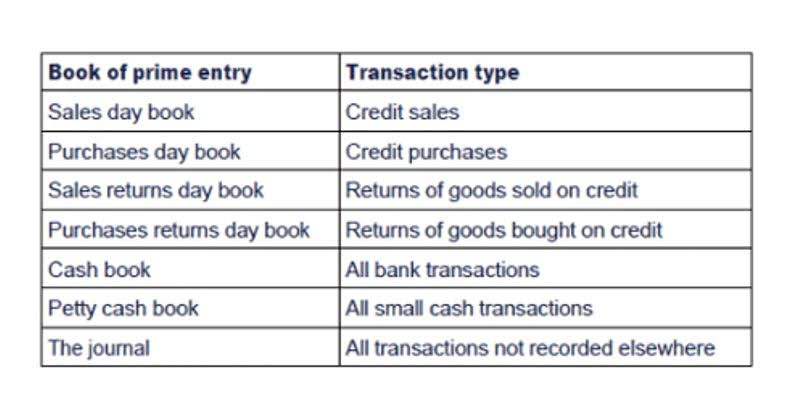Oil and Gas Accounting: Key Fields and Principles Explained

The process begins with geological and engineering assessments to determine the quantity of recoverable hydrocarbons in a reservoir. These assessments rely on a combination of seismic data, well logs, and production history to create a detailed subsurface model. Advanced software tools like Petrel and Eclipse are often employed to simulate reservoir behavior and predict future production.
Oil and gas companies: 2020 Q2 accounting, financial reporting, and regulatory developments
Most major E&P companies implement the Successful Efforts (SE) method due to the transparency accounting for oil and gas companies it provides. In SE, costs are capitalized based on whether the well is successful or not (i.e., hydrocarbons are produced). A diversified oil & gas company has slightly different statements and you see more items related to its midstream and/or downstream capabilities; for a good example, click here to view Exxon Mobil’s financial statements.
Protect Assets and Data

These costs are recoverable from the production, known as “cost oil,” once commercial production begins. The remaining production, termed “profit oil,” is then split between the state and the contractor according to a pre-agreed formula. This split can vary significantly depending on the terms negotiated and the level of production achieved. This annual publication provides an update on accounting, tax, and regulatory matters relevant trial balance to the oil and gas industry.
- As an intricate discipline, oil and gas accounting plays a pivotal role in valuing assets, managing risks, and supporting sustainable practices in the exploration, extraction, and production of oil and gas resources.
- The FASB and IASB are nearing the end of their journey toward enhancing lease accounting.
- This method is typically used when the investor has significant influence but not control over the joint venture.
- The historical cost principle emphasizes reliability and verifiability in financial reporting.
- Key ASUs for all organizations are discussed in depth in the Accounting and Financial Reporting Developments for Public and Private Companies Newsletters.
- For instance, a significant drop in oil prices may lead to a reassessment of the economic viability of certain fields, resulting in impairment charges.
AICPA issues guidance on accounting for Paycheck Protection Program loans
You measure the company’s reserves (how much they have on their balance sheet, ready to extract, produce, and sell) and production (how much they produce and sell each day, month, quarter, year, etc.) in these units. Deloitte refers to one or more of Deloitte Touche Tohmatsu Limited, a UK private company limited by guarantee (“DTTL”), its network of member firms, and their related entities. In the United States, Deloitte refers to one or more of the US member firms of DTTL, their related entities that operate using the “Deloitte” name in the United States and their respective affiliates.

Another layer of complexity is added by the various types of contracts prevalent in the industry, such as take-or-pay agreements and production imbalances. Take-or-pay contracts require the buyer to pay for a minimum quantity of product, regardless of whether they take delivery. This necessitates careful consideration of the timing and amount of revenue to be recognized, especially if the buyer does not take the full contracted volume. Production imbalances, where partners in a joint venture may take more or less than their share of production, also require meticulous accounting to ensure that revenue is accurately reported. The accounting for AROs begins with the initial recognition of the obligation at the time the asset is installed or when the obligation is incurred. This involves estimating the future costs of dismantling and restoration, which are then discounted to their present value.
Production Sharing Contracts (PSCs) are a prevalent arrangement in the oil and gas industry, particularly in regions where governments seek to retain ownership of natural resources while leveraging the expertise and capital of private companies. Under a PSC, the state grants an oil company the right to explore and produce hydrocarbons in a specific area, with the understanding that the company will recover its costs and share the remaining production with the state. Accounting in the oil and gas industry is a specialized field that requires a deep understanding of both financial principles and sector-specific practices. The complexity arises from the unique nature of exploration, extraction, and production activities, which involve significant capital investment and long-term project timelines. Adherence to accounting standards and compliance with regulations is essential to avoid legal issues, ensure regulatory compliance, and maintain industry integrity. We’re here to serve as an extension of your business and address all your accounting needs.
- Our professionals share your entrepreneurial spirit and want to help you strategically plan for the future.
- One of the primary considerations in revenue recognition is the point at which control of the product is transferred to the customer.
- Each of these has its own unique set of departments that handle the various entries and procedures to ensure costs and revenue are accounted for properly.
- The good news is that while bank and insurance modeling is almost a different game entirely, oil & gas modeling is more like a variation on a game you’re already familiar with.
- It is widely used in oil, gas, mining, and other commodity-based sectors, and it often produces more accurate results than the standard DCF analysis.
- The impairment assessment typically involves estimating the future cash flows that the asset is expected to generate, discounted to their present value.
GAAP’s Ten Major Accounting Principles

GAAP is dynamic, and the FASB continually updates and issues new standards to address emerging issues and improve the quality of financial reporting. All oil and gas companies are expected to stay current with the latest accounting standards to ensure compliance with U.S. Oil and gas accounting is a specialized discipline essential for accurately tracking and reporting financial activities in the oil and gas industry.
